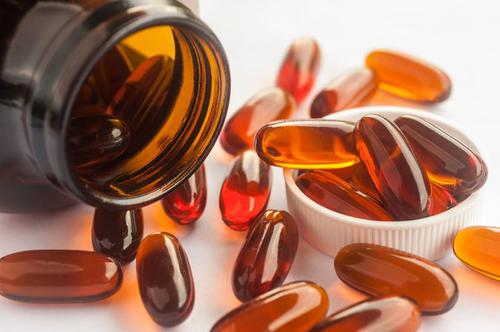Why Does Iron Turn Stool Black - Facts You Must Know
Iron is one vital mineral that the human body needs. It is found within the hemoglobin part of red blood cells where it's used for oxygen transportation. When a deficiency in iron level is registered in the body, anemia results. Meat, tofu, fish, cereals, and spinach are foods that provide iron. Additionally, there are iron supplement pills that one can take under a doctor's prescription to boost iron levels. If you happen to take more iron than your body needs, black stools are the side effect you experience. Although, black stool without the accompaniment of other symptom is considered normal, when it is accompanied by sharp pains in your stomach, cramps, and tarry-looking stool, medical attention is needed ASAP.
Best Tips to Why is Your Stool Black
Poop can have a variety of colors. It is a good indicator as to whether or not you are in good health. If you notice your stool has an unusual color or smell, you need to seek a doctor's attention. Here's why.

1. Why does iron turn stool black?
The issue of why does iron turn stool black should not make you worried. In itself, it is not a cause for concern. In fact, if one takes iron supplements and their stool does not turn black, then that is a worry. If poop turns black after ingesting iron tablets, it is a sign that your iron supplements were well absorbed. If this does not happen, then those supplements were not absorbed well (possibly due to tablet coating). But when you take iron in excess, one side effect is that there will be black stool.
2. Other possible causes of black stool
- Diet
Poop can take any color depending on the type of food and drinks that make up one's diet. Chocolate, black licorice, kale, spinach, blueberries or purple grape juice are some food types that cause black stools. The point to note is, if you can link your poop color to some kind of food, then you are safe and should not worry. But if you have no idea of the cause, consider going for a medical checkup.
- Medications
Some medicines including iron taken by pregnant mothers and anemics can answer the question of why iron turn stool black does. If one happens to take any medicines containing Bismuth for digestive issues, they will see their stool turn black. It is just a normal thing after taking such medication.
- Peptic ulcers
Peptic ulcers are common to many. They develop around the stomach lining or small intestine walls. When these ulcers bleed, they case a condition called melena. Peptic ulcers are caused by smoking, excessive intake of NSAIDs, bacteria and excessive alcohol. When blood from the bleeding sores gets mixed with digestive enzymes, it turns into a black color, thus turning poop black.
- Gastritis
Gastritis can be defined as a condition where stomach walls or lining get inflamed and remain so for years. If one does not seek medical attention, severe stomach pain might result. Erosive gastritis causes the black color of the stools.
- Esophageal varices
Some of the causes of Esophageal varices are liver diseases or alcoholic diseases of the liver which causes blockage of liver veins. When such blockages happen, the excess pressure causes rupture to the lower veins around the esophagus. When they rupture, bleeding occurs in the esophagus. That blood mixes with digestive juices to form black stools.
- Cancer
If you wonder whether does iron make your stool black, iron is not the only cause. When cancerous tumors develop within the esophagus, stomach walls, or colon, bleeding occurs. That bleeding leads to melena, a cause of black stools.

What You Should Know About Iron Supplements
Human body stores iron in the muscles, bone marrow, liver and spleen. When iron deficiency is detected, you can turn to an iron-packed diet, although a doctor might prescribe iron supplement for immediate correction of the situation. But be aware, these supplements have side effects. Read more for a better understanding about the supplements.
1. Dosage
Iron dosage follows a medical plan called Dietary Reference Intake (RDA). Below is the recommended RDA for iron supplements:
- 19-50 years: Males should take 8mg per day, 18 mg per day for females, 27 mg per day for expectant mothers and 9 mg per day for breastfeeding mothers.
- 50 years and above: 8mg per day.
- Anemic people should either take 300 mg of ferrous sulfate every 12 hours, 300mg after every 6 hours (an increase) or 250 mg a day after 12 hours daily.
2. Other side effects of iron
Apart from the side effect question of whether does iron supplements cause black stools? There are other side effects which you should be asking about.
- Stained teeth
When iron gets into contact with the teeth enamel it can cause decay. To avoid teeth staining, you need to brush your teeth using baking soda or hydrogen peroxide every time after taking iron-containing liquid.
- Diarrhea, vomiting, and nausea
After taking an iron supplement, one should not take milk, high fiber-containing food, caffeine or whole cereals. When iron reacts with the named food and drink types, the resulting effect is never pleasing. It can cause vomiting, diarrhea, and nausea.
- Interactions
Antacids, proton pump inhibitors, and H2 antagonist do not mix well with the absorption of iron (they inhibit the absorption option). You have to forgo these oral supplements if you need to take iron supplements. Also iron-containing salt reduces the concentration of cefdinir, quinolone antibiotics, eltrombopag, and bisphosphonates.
In conclusion, black stools are not a reason to worry; that is why a doctor's examination should be considered any time you doubt the reason behind your black stool. But if you notice other symptoms accompanying black stool, for example diarrhea, acute abdominal pains, vomiting or blood patches on poop, there is a reason to worry. But, with a doctor's advice and following the above guidelines, you can avoid any reason to worry.
YOU MAY LIKE
-
Best Antidepressant for Weight Loss - Top Tips for You
-
Things to Have in Mind Before Stopping Statins
-
What Is the Best Diet to Follow When Having Antibiotics?
-
What to Do if You Overdose on Ibuprofen
-
The Effects of Adderall to Your Body
-
Things About Primolut N You Must Know
-
Facts About Steroid Shots for Sinus You Must Know
-
Antibiotics! Some Harmful Aspects and Prevention Tips
-
Iron Deficiency? Take a Look at This!
-
Effects of Over-The-Counter Medications on Your Blood Pressure
